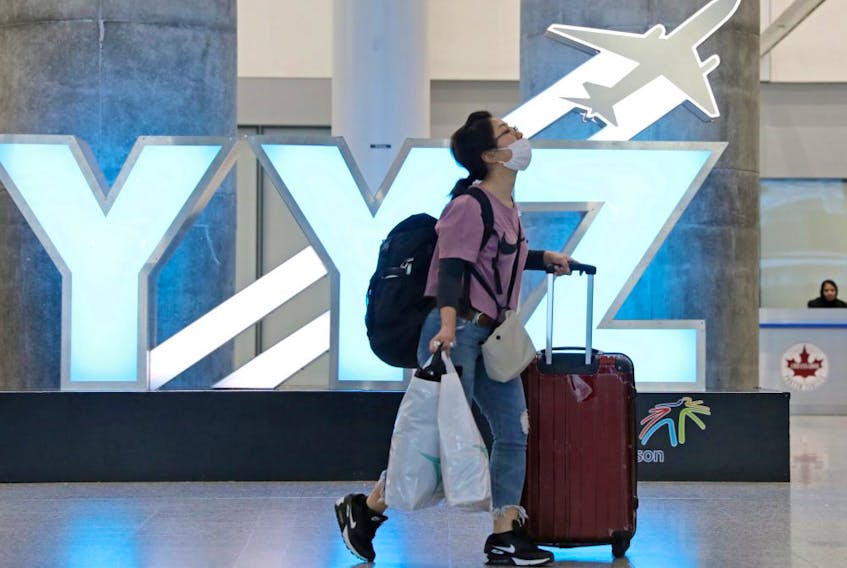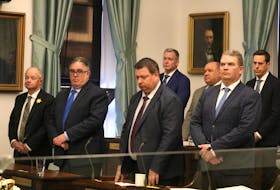Canada will close its borders to foreign nationals as a measure to stop the spread of COVID-19.
The far-reaching measure was announced Monday by Prime Minister Justin Trudeau, who remains in self-isolation following his wife’s positive diagnosis for the virus.
Starting Wednesday, only Canadian citizens, permanent residents, and immediate family of those two categories will be allowed entry. Other exceptions include travellers in transit to another country, air crews, and diplomats.
American citizens, however, will not be banned from entering Canada.
Furthermore, Trudeau announced that anyone with symptoms of COVID-19 will not be able to return to Canada. Air operators will be required to complete a basic health assessment of every air traveller based on guidance from the Public Health Agency of Canada and instructed to bar anyone who is ill from boarding the flight. There will also be measures in place to handle anyone who exhibits symptoms during the flight, including notifying air traffic controllers of the situation so that passenger can be met on landing.
“This means that anyone who has symptoms will not be able to come to Canada. I know this news will spark concern among Canadians travelling abroad. I want to assure you that our government will not leave you unsupported,” Trudeau said.

To help asymptomatic Canadians return home the federal government will set up a support program in the coming days.
“Canadian travellers will be able to get financial assistance to help them with the costs of returning home or temporarily covering their basic needs as they wait to come back to Canada,” Trudeau told reporters.
“Canadian travellers should return to Canada via commercial means while it is still possible to do so. Let me be clear, if you are abroad, it's time for you to come home.”
Ottawa has previously said it would not offer any more mass repatriation flights like the ones it provided to Canadians in Wuhan, China or aboard the Diamond Princess.
In addition, also effective on March 18, all international flights will be diverted to the Montreal Toronto, Calgary and Vancouver airports. Fights from the U.S., the Caribbean and Mexico can continue to land at their scheduled Canadian destinations, and domestic flights will not be impacted. Transport Minister Marc Garneau said these measures will ensure travellers are being managed efficiently as possible.
With Chief Public Health Officer Dr. Thereasa Tam’s official advisory on Sunday that all Canadians who are returning from outside Canada must self-isolate for 14 days, Public Safety Minister Bill Blair outlined increased screening and messaging that has begun at all points of entry to Canada. All passengers returning to Canada, regardless of where they are travelling from, will be asked if they have a cough, difficulty breathing or a fever. They will also be asked to acknowledge that they are being told to self-isolate for 14 days to prevent the potential spread of COVID-19. Passengers will be given instructional handouts upon arriving in Canada that will also tell them to self-isolate at home for 14 days, to monitor themselves for symptoms, and direct them to contact public health authorities if they get sick.
“In addition to these measures there will be enhanced [border] officer presence at all major airports and ports of entry to carry out public health screening and outreach,” Blair said.
“The officers will be on the lookout for any traveller who looks ill and may refer any suspected cases to public health authorities.”
If officials identify ill passengers before they arrive, Blair said, they will be met at the gate by border security officers, isolated from passengers processing areas, and referred immediately to public health officials.
Ministers grilled

Facing questions about inconsistent screening that has been reported by passengers arriving at Canadian airports, Blair noted that the directive for all international passengers to self-isolate only came on Sunday. Prior to that, the advice only applied to certain countries.
“I want to assure Canadians that since the outset all the actions that have been taken at our borders have been informed by the evidence and expert advice of public health,” he said.
The mandatory 14-day isolation period also includes anyone travelling from the U.S. into Canada, with a few notable exceptions including the crew of any plane, train, or marine vessel crossing the border on a regular basis, truck drivers making deliveries across the border on a regular basis, and persons whose profession requires cross-border travel.
Trudeau and his cabinet also faced questions about why, in light of international criticism of the way the U.S. is handling the pandemic, Canada is continuing to leave its border with the U.S. wide open.
Health Minister Patty Hajdu said the border between the U.S. and Canada is essential to critical supply chains that include food, medicine and other essential goods.
“Whatever is done at the American border needs to be done thoughtfully and in partnership with our American cousins,” she said.
Trudeau said the situation with the U.S. border will continue to be monitored on an ongoing basis and did not rule out the possibility of increased measures or a potential closure if necessary.
Also on Monday, Trudeau again hinted at additional financial measures to support Canadians financially impacted by COVID-19, especially the most vulnerable. He said that announcement could come as early as Tuesday.
“The economic impact of this pandemic is shifting hourly and we recognize the stress and anxiety it is causing,” he said. “We are prepared to see Canadians through.”
Tam also addressed media on Monday, reminding Canadians to continue to self-isolate as much as possible, practice social distancing, avoid all international travel, and calling on all gatherings with more than 50 people to be cancelled.
As of Monday afternoon, there were 407 individuals infected with COVID-19 in Canada and four deaths, with cases identified in every province. Starting Tuesday, Canadian officials will update the public on developments related to COVID-19 every day at noon eastern time.









